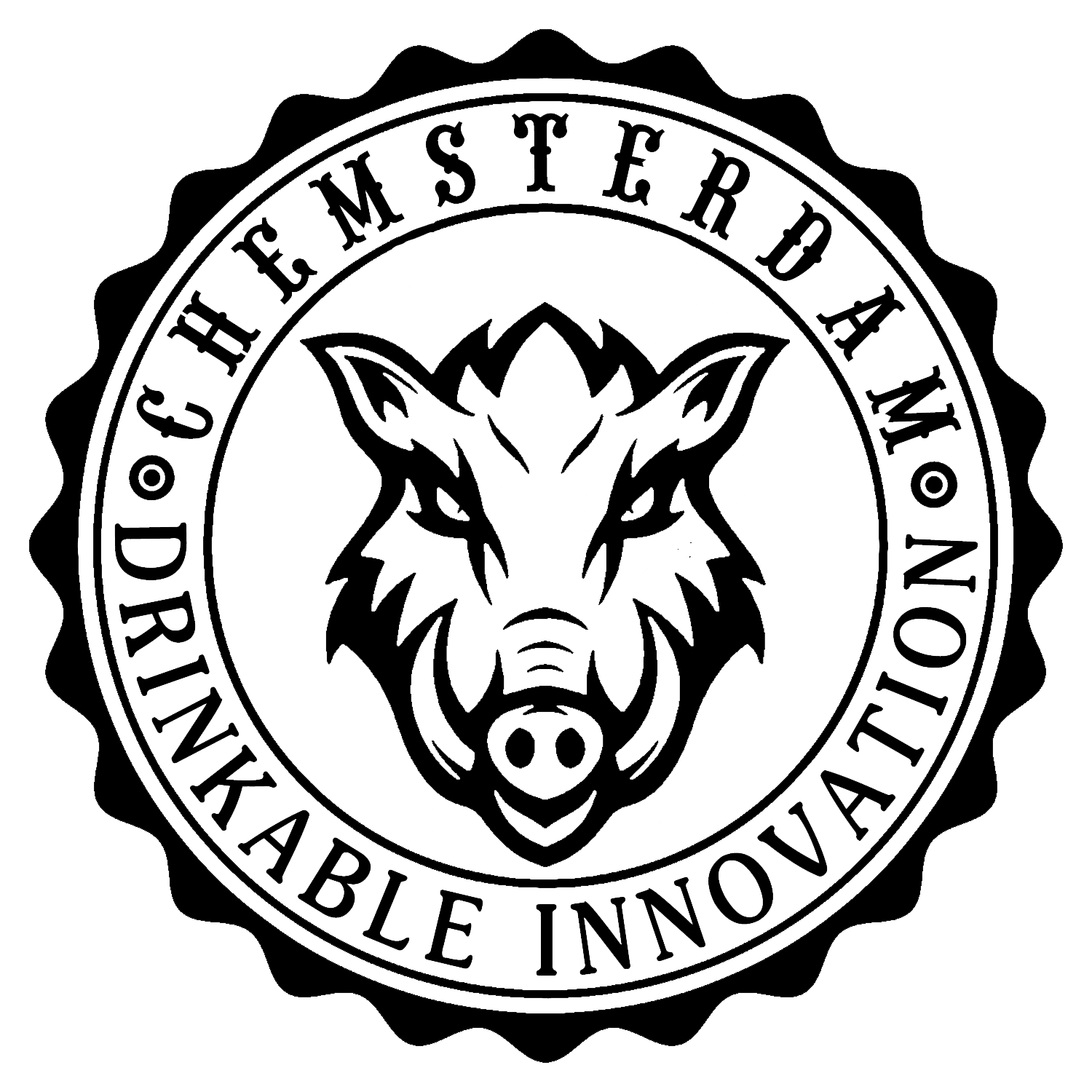🐼 x🍹Baijiu Cocktail 005: Gin-ger-Bai 金吉白
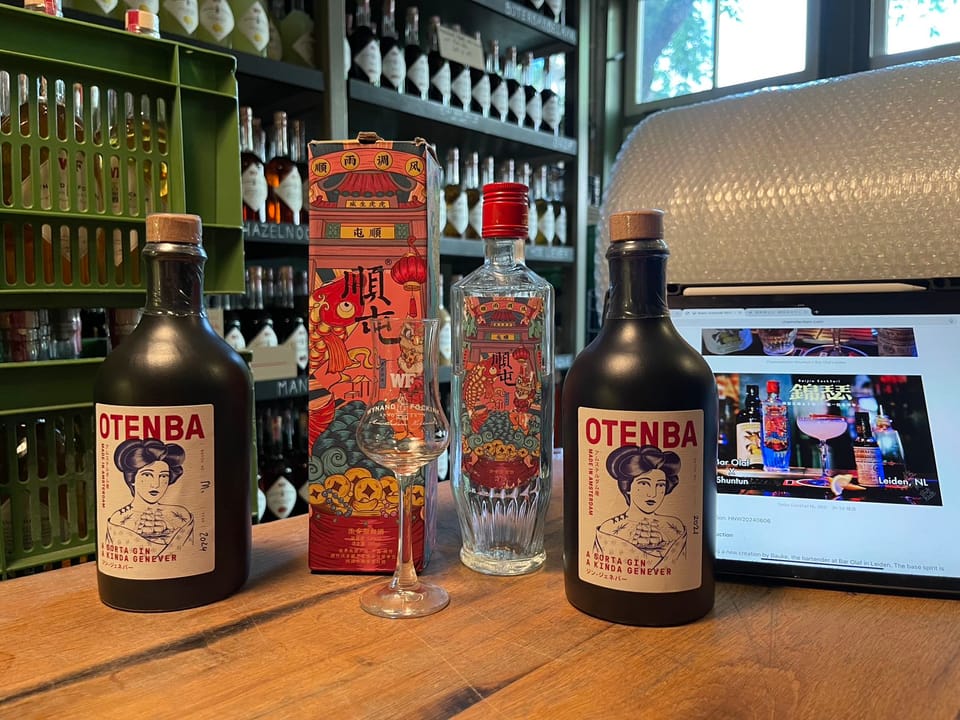
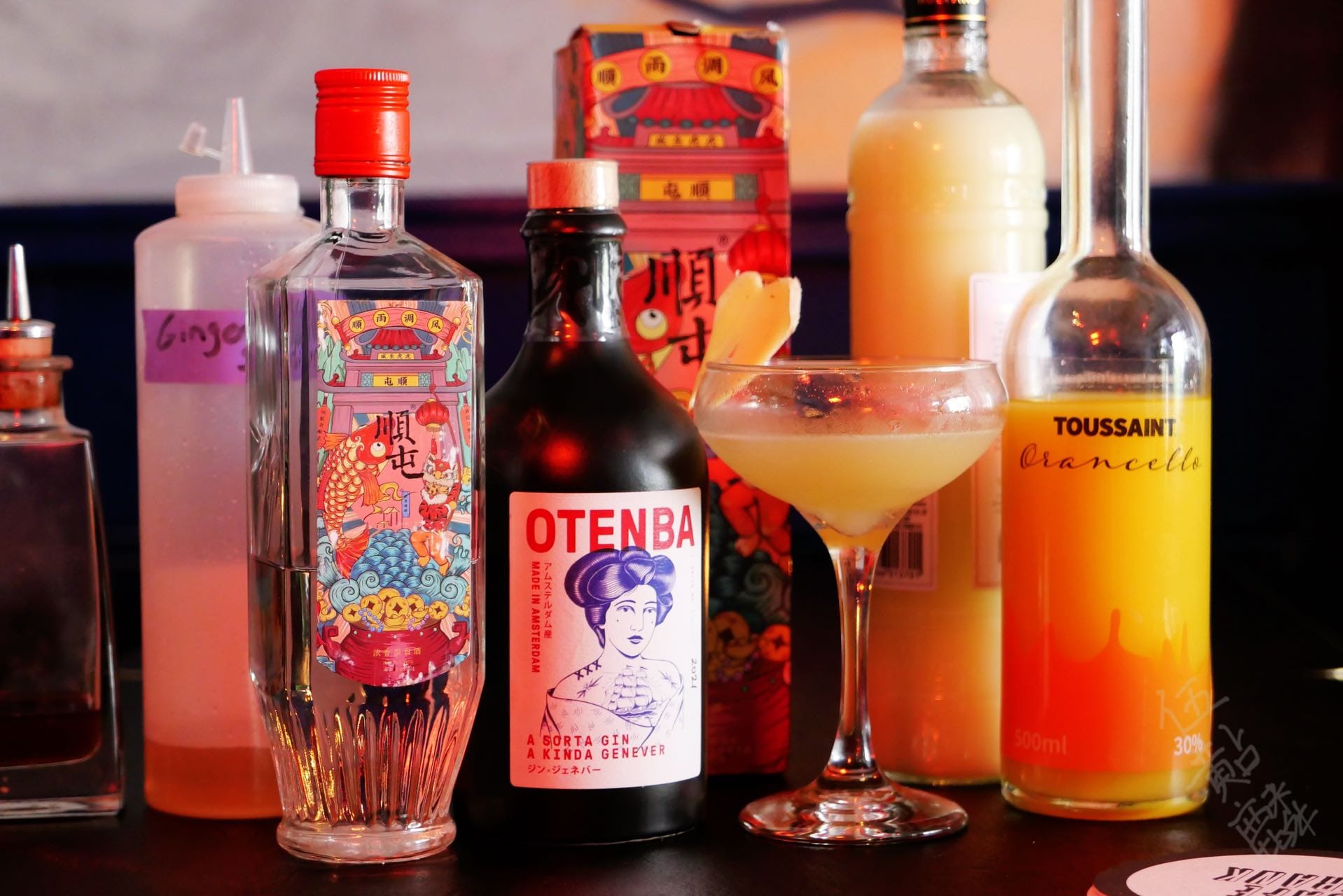
It was on that day that I received two important pieces of information from Caco at TikiTaka Cocktail Bar in Rotterdam: 1. Otenba Gin is the creation of the famous Dutch distiller Monique; 2. Bar Olaf and Cafe Frank in Leiden are two of the most worthwhile cocktail bars to visit locally. These two pieces of information led to two significant experiences: 1. After more than two years of longing, I finally met Monique at the Wynand Fockink distillery in Amsterdam; 2. I met Mees at Cafe Frank, experienced his hidden menu item Diablo Ahumando, and eventually collaborated with him to create a cocktail using Otenba Gin and Shuntun Baijiu.
Today's story is quite complex, so let me take my time to explain.
Monique and Otenba
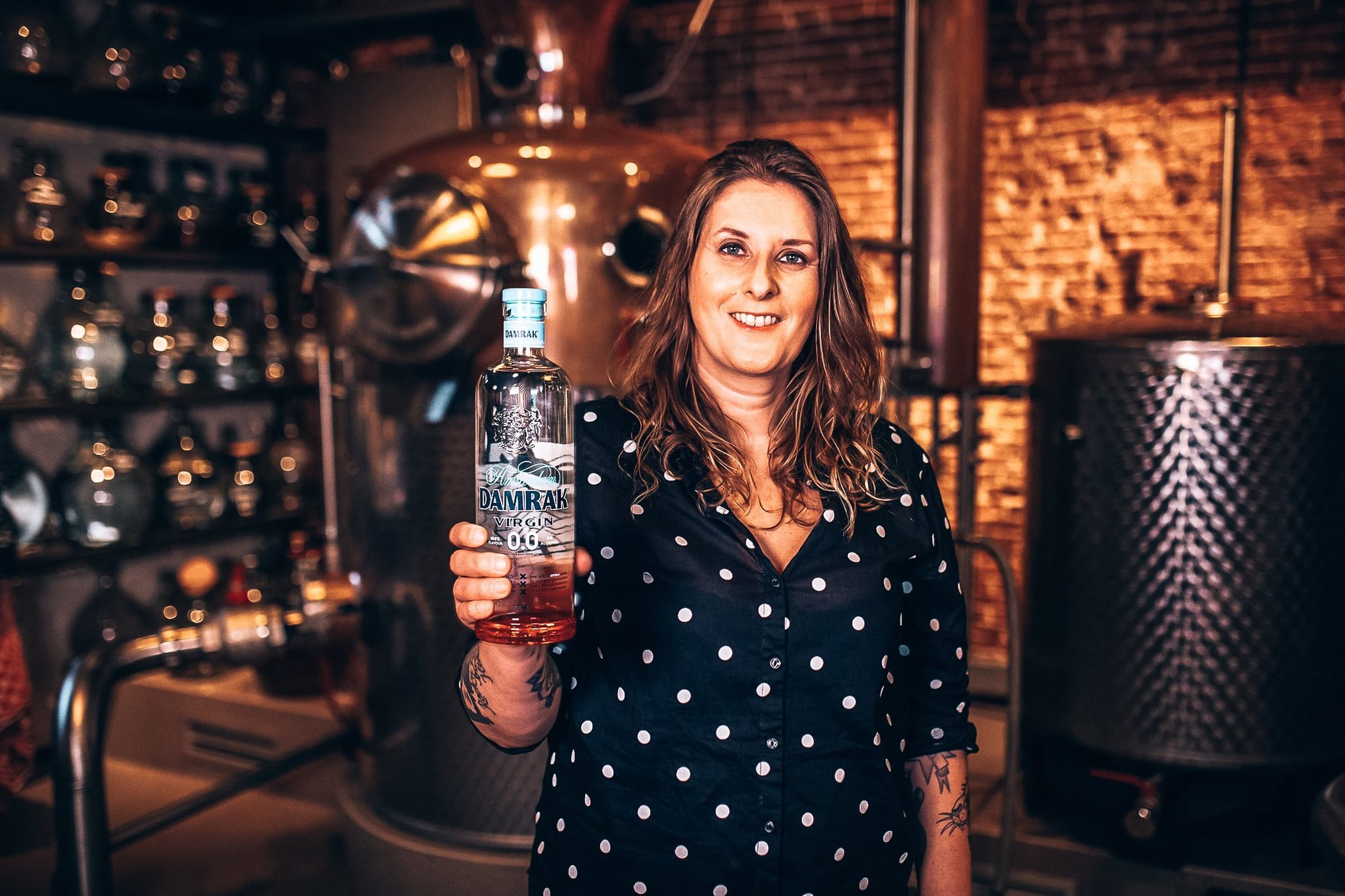
Monique ten Kortenaar is the Head Distiller and Distillery Manager at Lucas Bols. Before becoming a distiller, she worked as a Quality Manager at the same company. With a background in chemical analysis, inspired by her grandfather, a perfumer, she ventured into the distillation field. She has extensive experience in quality management and product development and eventually succeeded Piet van Leijenhorst as the head of the distillery. During her time at Lucas Bols, she has been involved in numerous innovative projects and enjoys considerable freedom to develop new products.
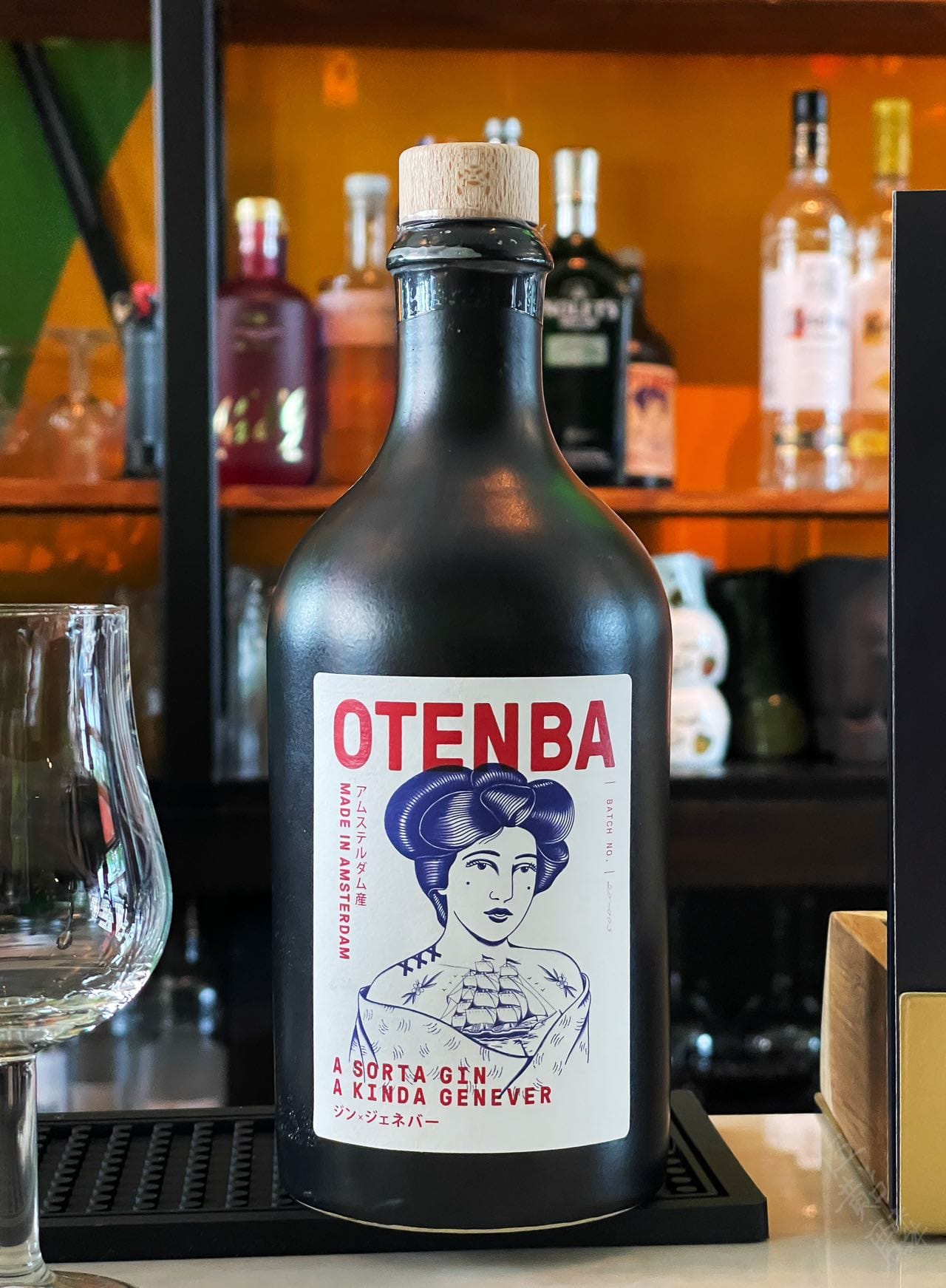
OTENBA is an innovative spirit created by Monique ten Kortenaar. Combining the characteristics of gin and Dutch jenever, Monique developed this unique hybrid drink. OTENBA primarily uses Asian botanicals, including juniper berries, pandan leaves, Sencha tea, Sansho pepper, and lemongrass. The aroma blends citrus notes from gin with the warm tones of malt wine, while the taste is simultaneously fresh, warm, and spicy. The name OTENBA, meaning "rebellious girl" in Japanese, honors Monique's grandfather, who was a perfumer for the Asian market.
Meeting Monique
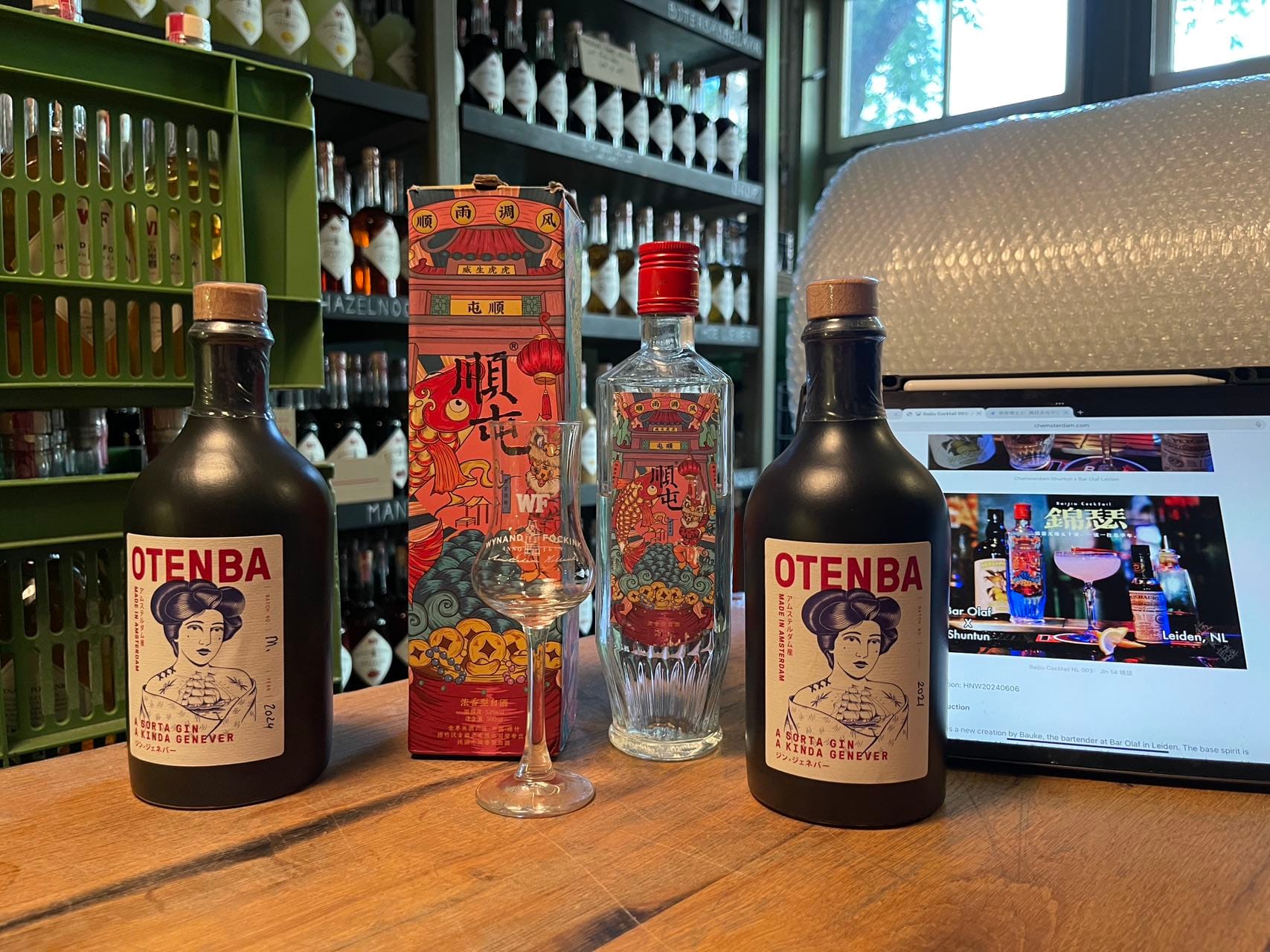
The first time I saw OTENBA was two years ago. I was intrigued by it, but I didn’t know it was Monique’s creation at the time. It wasn’t until two weeks ago, during my visit to TikiTaka in Rotterdam, that I had my first taste. As someone familiar with both gin and jenever, I had certain expectations. However, the first sniff of OTENBA surprised me; it was like opening a perfume bottle. The aroma was rich and layered, with a subtle juniper scent hidden behind the Sansho and lemongrass. On the second sniff, I could detect the pandan and tea notes. This aromatic structure made me eager to taste it. With just 3ml, it didn’t have the sharpness of baijiu; at 40% ABV, it started light, followed by a pronounced peak, a blend of sweetness with a hint of peppery spice, leaving a cool and warm sensation in the throat and a lingering sweetness of lemongrass on the tongue. At that moment, I suddenly craved Thai basil pork with a few extra mint leaves.
Heartfelt Delight
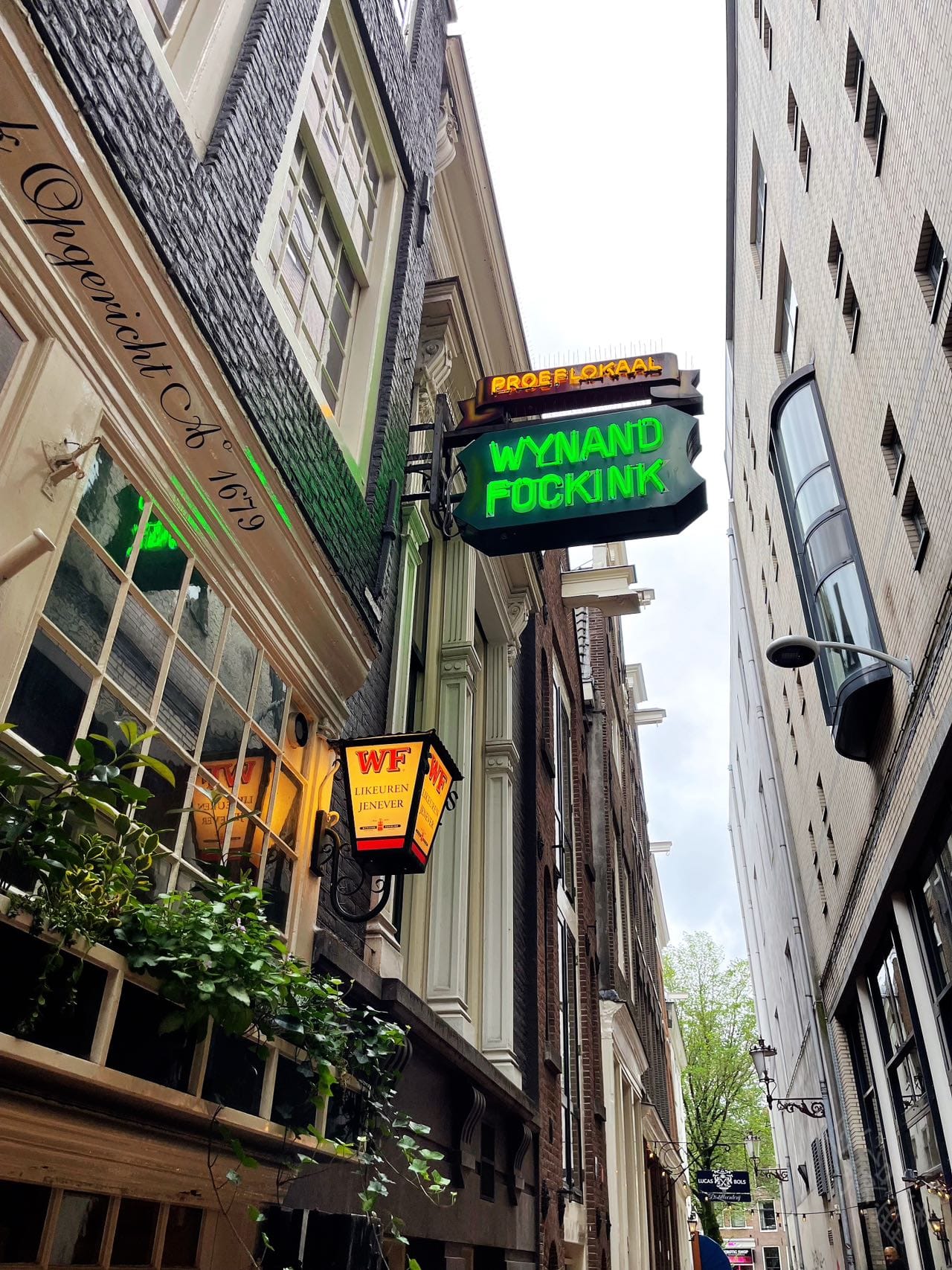
The first time I met Monique was in 2022 at Wynand Fockink. We exchanged greetings and phone numbers, and she went back to her busy schedule. I was slightly disappointed not to have had more time to talk. Wynand Fockink, established in Amsterdam in 1679, has remained in the same alley for 345 years.
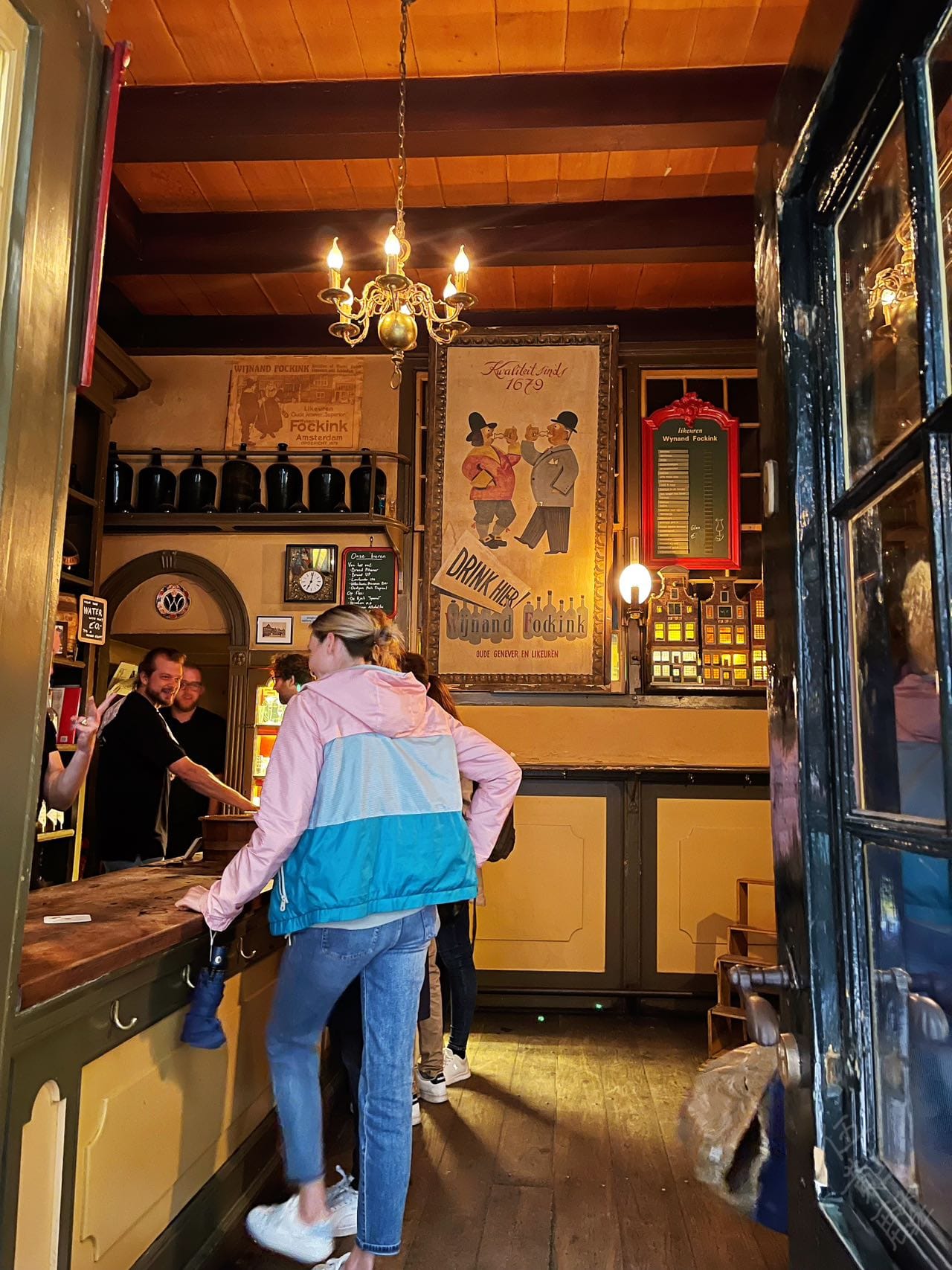
It is a must-visit for distillation enthusiasts, known for its unique tradition of serving a beer with a glass of jenever, a combo known as Kopstootje. Monique’s busy schedule and the Dutch love for planning made it hard to arrange another meeting. I wanted to learn how to distill jenever from her. Two weeks ago, after tasting OTENBA, I gathered the courage to invite her again, eager to take OTENBA and my Shuntun Baijiu on a journey together.
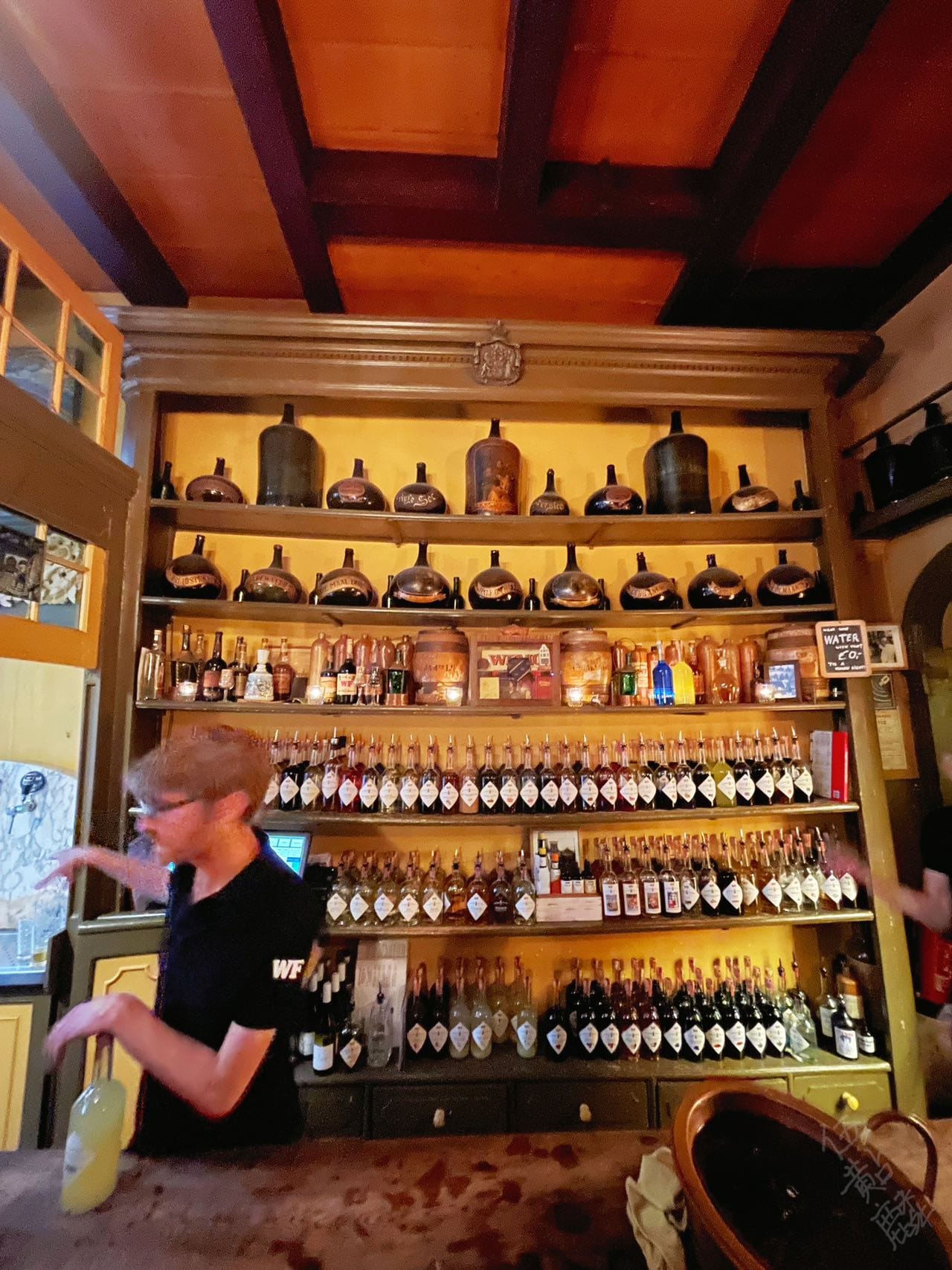
We scheduled a meeting at the distillery. I arrived a minute early, just as Monique was walking to the distillery entrance. She took me into the Wynand Fockink storage room, where our first real conversation began.
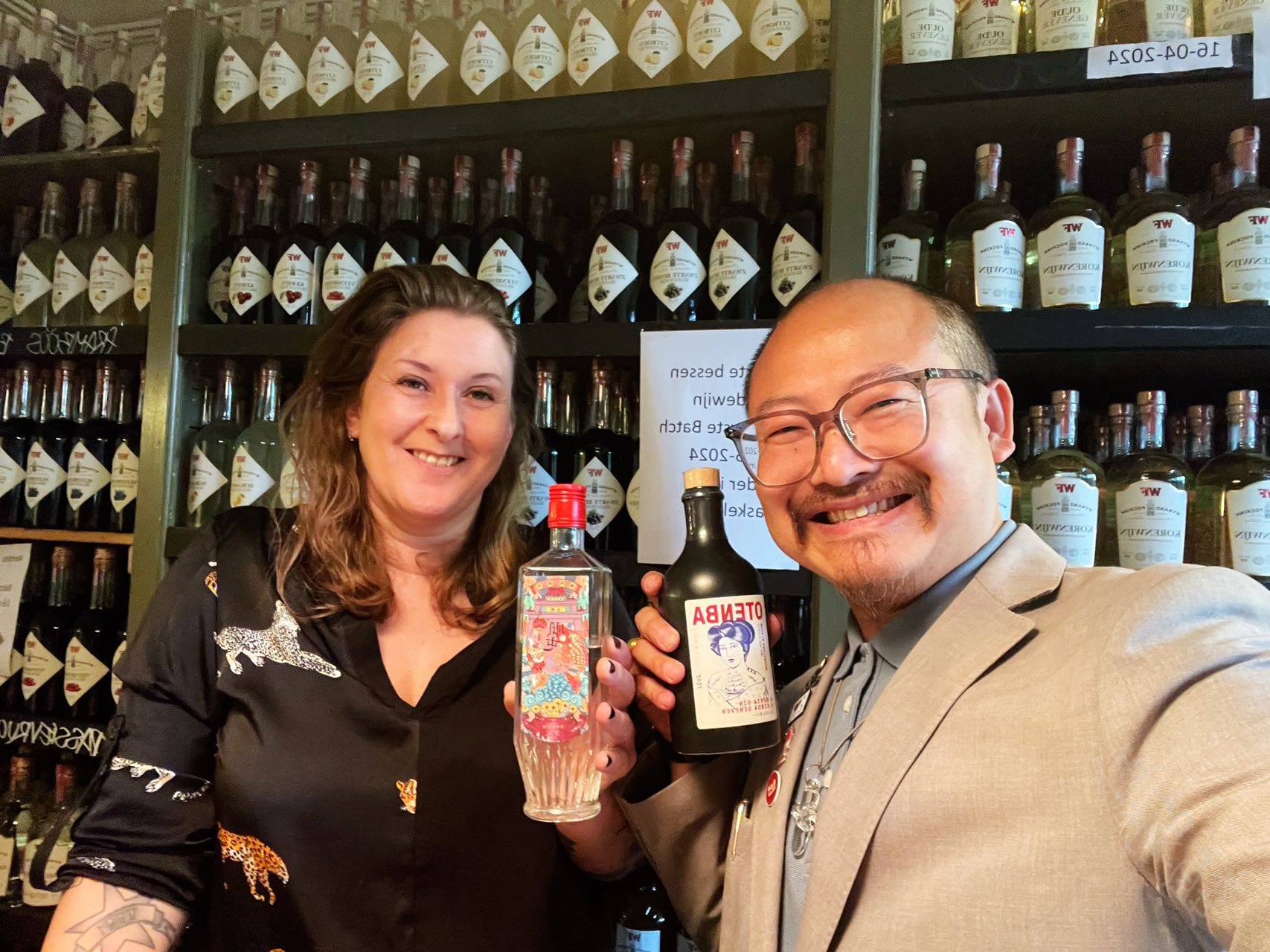
“We finally meet!” I said, “After our last encounter, I didn’t get another chance, but tasting OTENBA made it a must to see you because it’s truly amazing.”
“What ideas do you have?” Monique asked.
“I have two purposes today. First, our baijiu arrived in the Netherlands last November, and after half a year, it’s now sold in 25 cities' liquor stores. I want you, as a master distiller, to taste our baijiu and provide feedback. Second, I’m always searching for unique flavors and deeply respect distillers passionate about spirits. I hope to share your spirits with my partners.”
Monique smiled, and I understood that smile. When we first met, she might have doubted my ability to introduce baijiu to over 20 Dutch stores. She knew, as I did, how challenging it is to launch a new brand, especially baijiu, which has only 0.24% exported outside China. In the Netherlands, few know what baijiu is. But I managed to introduce it to this market, joining the European spirits carnival.
I prepared the baijiu, while Monique fetched three nosing cups. My heart raced with excitement. In my eyes, Monique is a goddess of the Dutch distillation scene. She delicately observed the baijiu, then inhaled its aroma, while I explained its ingredients, fermentation, distillation, and aging processes. After two or three sniffs, she tasted it. Unlike others new to baijiu, she calmly experienced its flavor. “It’s exploded in my mouth. It’s sweet and fruity.” I followed up, “Do you taste pineapple? These flavors are from the organic acids and esters formed during fermentation and distillation. Baijiu remains colorless because it’s aged in unglazed clay jars.”
Monique remarked, “This is unlike any spirit I’ve ever tasted, incredibly complex.” She called Max to join us, and he too found it fascinating. They discussed its unique flavors in Dutch, a conversation beyond my comprehension.
After tasting, Monique asked about my plans. I expressed my honor at her tasting my baijiu. “I hope to share your OTENBA with my clients, to introduce Chinese baijiu into the world of spirits. I aim for everyone, Chinese or local, to have access to baijiu in their region. And I want to share the unique spirits I discover, like your OTENBA.”
Monique noted, “OTENBA is my personal creation without a promotion budget.” I replied, “Don’t worry, your spirit and my baijiu share the same challenge! I visit cities and bars with faith and a backpack full of spirits.”
She asked, “Without a budget, what do you want me to do?”
“Just give me two bottles. When I share them, I’ll come back for more.”
Monique handed me two bottles of OTENBA, feeling like a monk receiving sacred texts. I believe in sharing good things with those who understand the dedication and respect labor with passion.
Leiden’s Cafe Frank and Mees
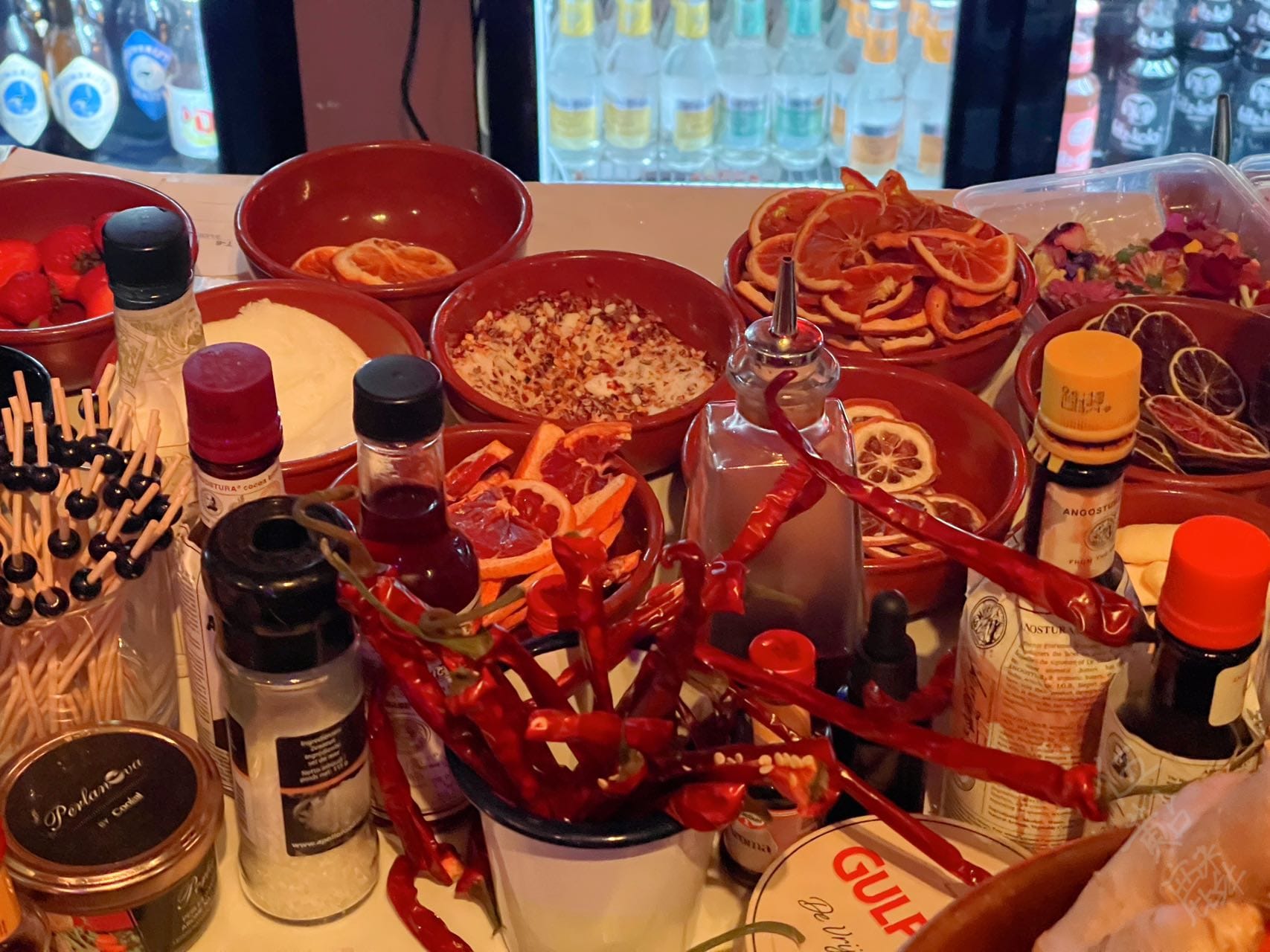
On June 7, I visited Cafe Frank in Leiden to see Mees, the Dutch bartender who loves incorporating spice into cocktails. During my first visit a couple of weeks ago, he made me a Diablo Ahumado (Smoky Devil), a hidden menu item with Mezcal, tequila, lime juice, chili juice, ginger beer, and cherry liqueur. To try it, you just need to say to him, “Amaze me, please.”
This time, Mees accepted my invitation to make a cocktail with baijiu and I brought him a surprise: not only with Baijiu, but also with OTENBA, a blend of gin and jenever.
In the afternoon sunshine, I waited outside Cafe Frank, writing my logs and anticipating Mees’s creation.
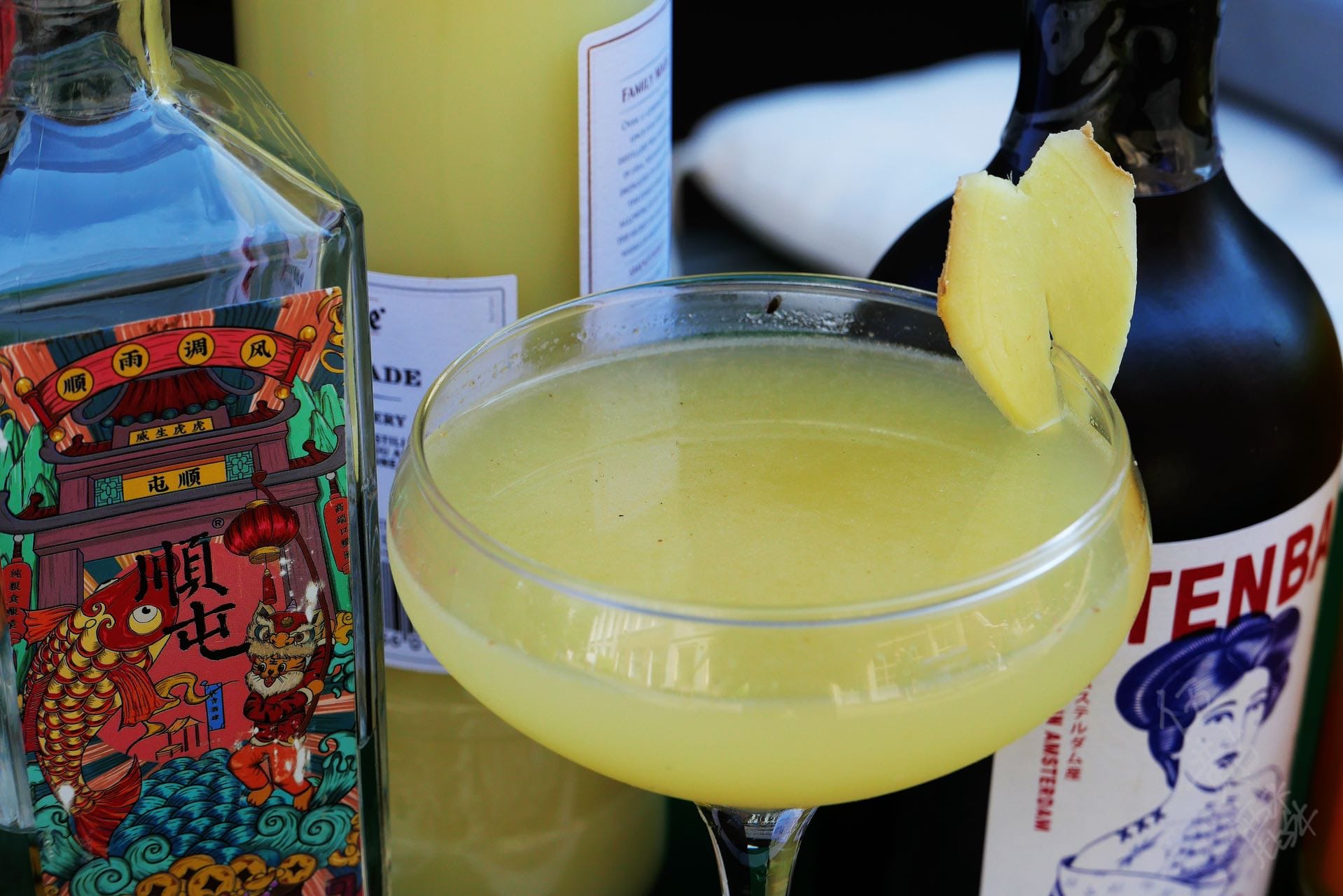
The cocktail was pale yellow, resembling pineapple juice, garnished with a heart-shaped ginger slice. It had the scent of a ripe wheat field, the breeze mingling the aroma. The first sip was mildly sweet, slightly acidic, and notably spicy, with a warm aftertaste that lingered. The pleasant warmth made me crave another sip, a cycle that continued until the glass was empty. I hope my bartender friends in China can recreate this, especially in places like Sichuan, Chongqing, Guizhou, Hunan, and Jiangxi, where spicy flavors are popular. Maybe it could use some Sichuan Timut Pepper extract?
Mees’s creation amazed me. Could he have been a Sichuan native in a past life, understanding the essence of complex Sichuan flavors?
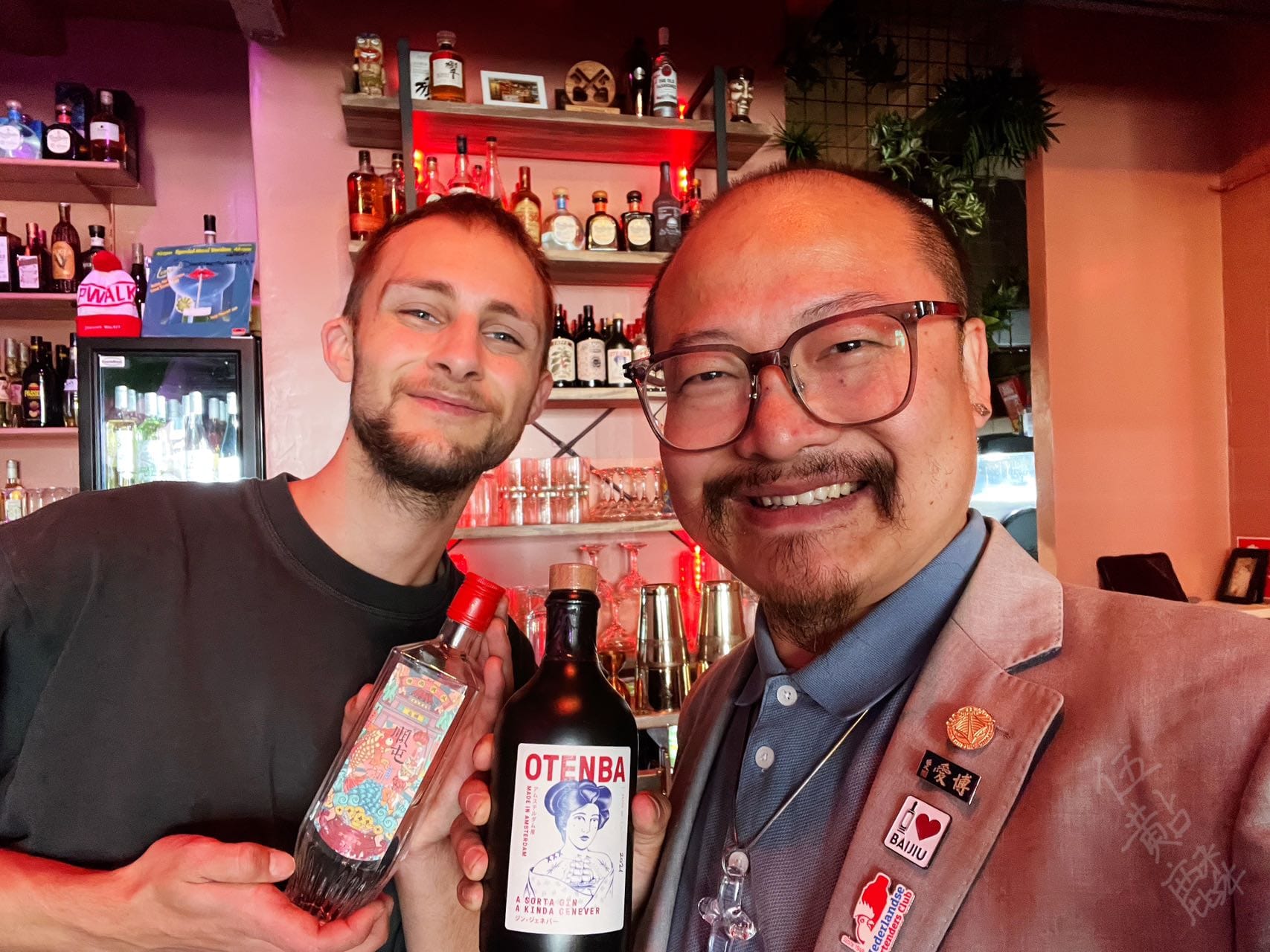
Elements and Naming
Otenba: Combining characteristics of Gin and Jenever.
Shuntun: Fragrant Baijiu
Leiden, Sichuan, Amsterdam, Spicy
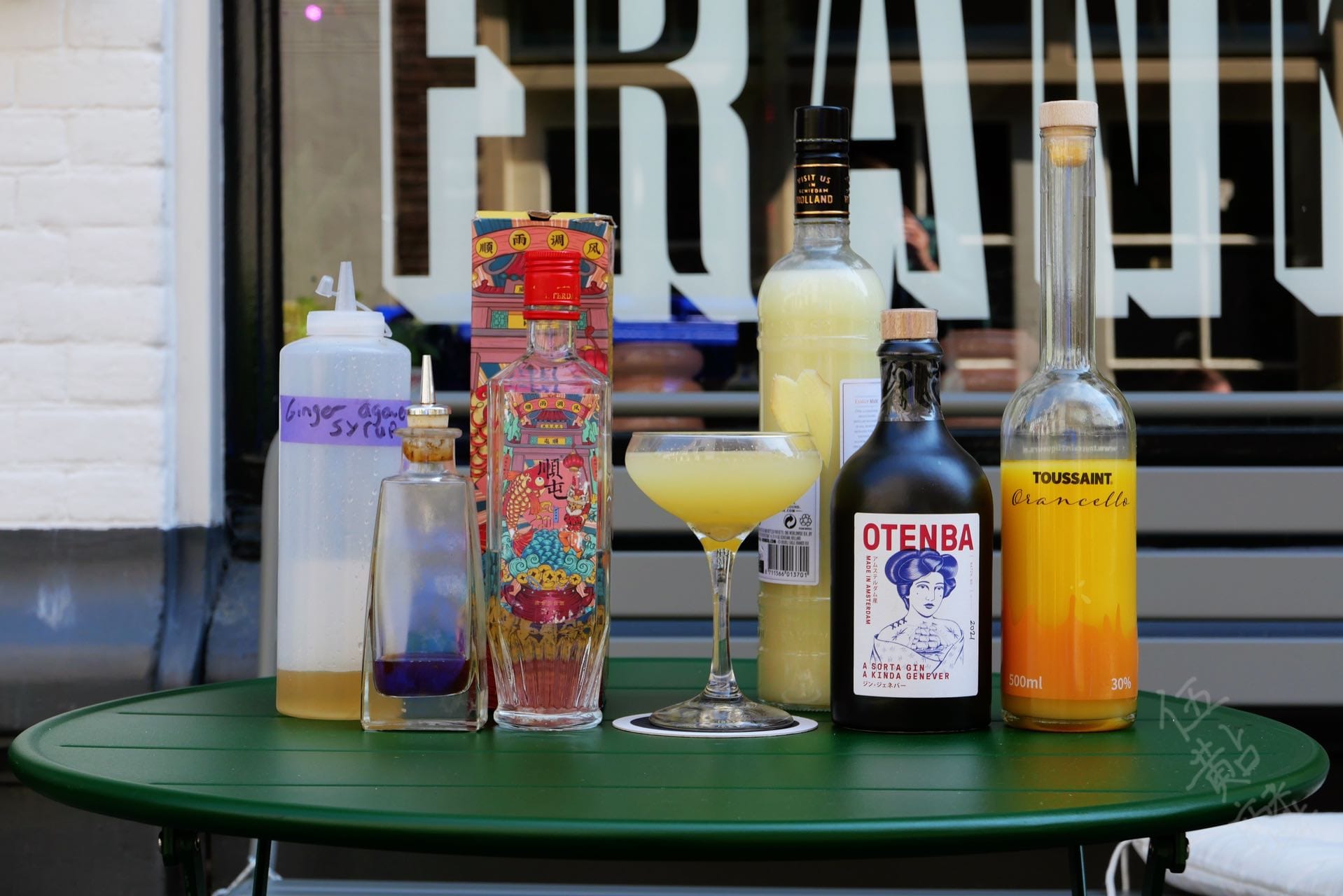
Basic Information
- Drink Name: Gin-Ger-Bai (Chinese: 金吉白, pinyin: jīn jí bái, IPA: [tɕin tɕi paɪ])
- Drink Type: Alcoholic Cocktail
- Base Spirits: 1. Shuntun Baijiu; 2. Otenba
- Serving Method: Stirred and strained to remove ice
- Garnish: Heart-shaped ginger slice
- Standard Glass: Coupe
Recipe
- Shuntun Baijiu 25 ml
- Otenba Gin 20 ml
- Ginger syrup 20 ml
- Lime juice 20 ml
- Toussaint Orancello 10 ml
- Chili extract 3 dashes
